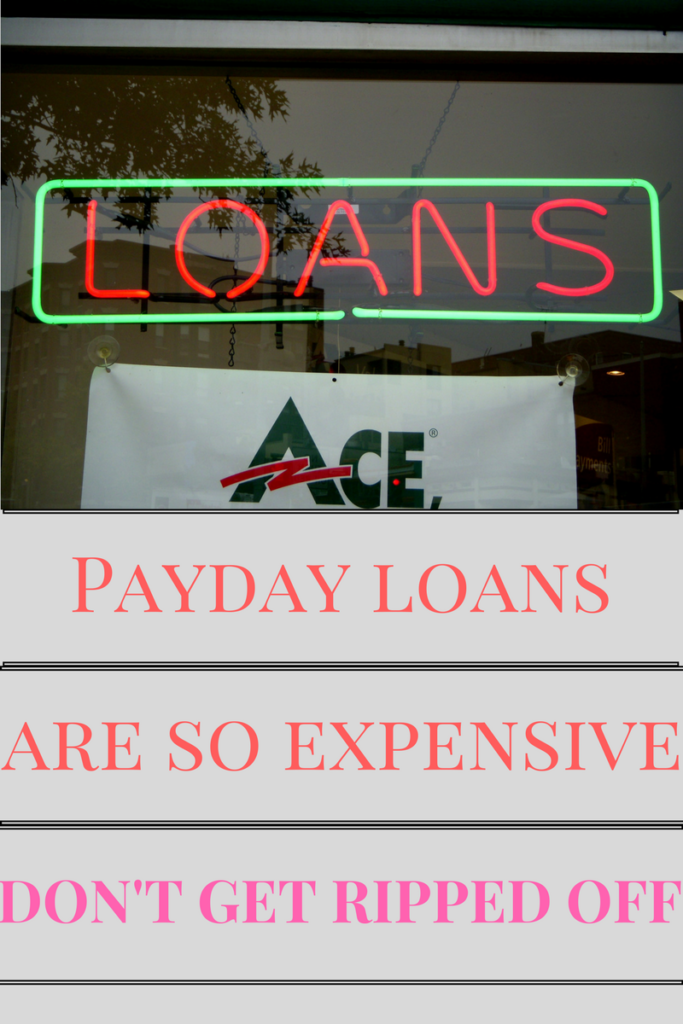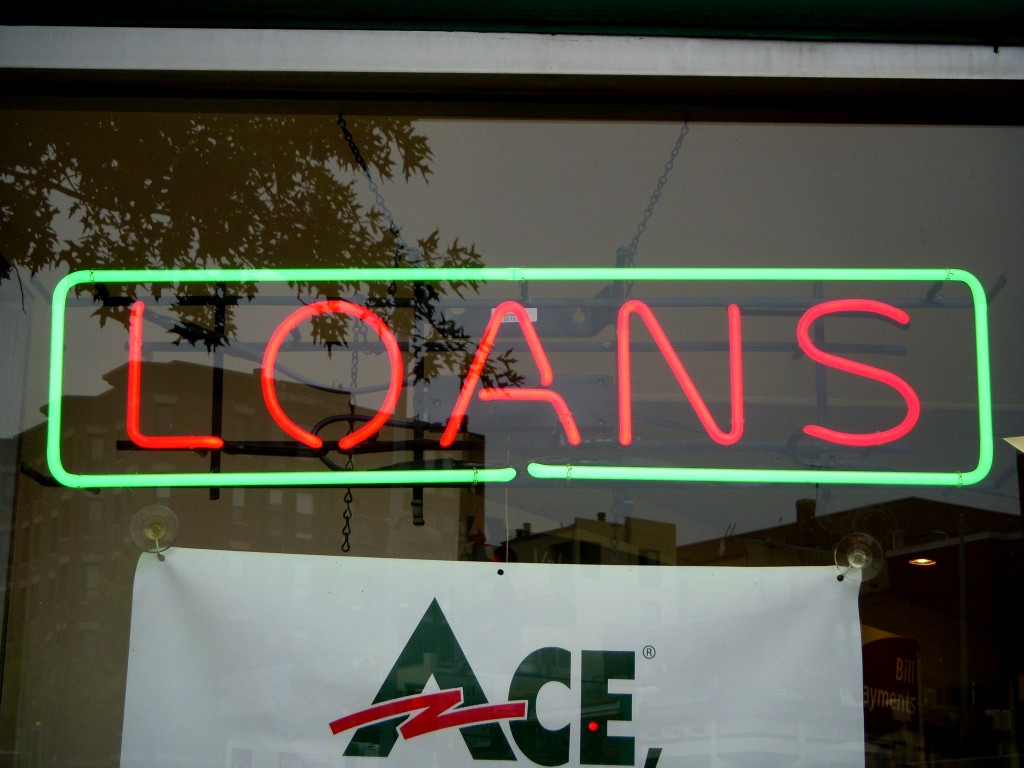Payday loans: don’t use them
Payday Loans. The name says it all. It’s a loan you take out before payday and repay on payday—essentially, a lien against your paycheck. And, as with any other loan, when you pay it back, you owe some interest. Since it’s a short-term loan, the amount of interest owed might not seem too great. But … Do you realize they charge an APR rate on these loans that varies from 261% to 1304% ? That’s huge! My advice is to avoid payday loans. Guess why!!
The definition of payday loan is a small loan that is usually intended to be paid back on the next payday. These types of loans have extremely high interest rates with the APR sometimes as high as 1300%.
Problems with payday loans from the beginning
I see two major problems with payday loans. The first I’ve already brought up—the interest rates. They are astronomical. The other problem is the borrowing/repayment cycle: It’s a trap. I’ll address both of these issues.
Exorbitant interest rates
An annual percent rate (APR) of 261 means that if you take a loan out for 1 year you will pay 2.61 times the value of the loan in interest. This means that if you borrow $1,000.00 for a year you will owe $2610.00 in interest plus the original $1,000.00 for a total of $3600.00. That’s a lot of money—especially the interest part. Interest payments are definitely a drain on your financial resources. Any solution to a financial crisis that involves paying interest will more than likely exacerbate rather than resolve the problem.
Now, I did say that when you are borrowing money for only a week the amount of interest you’ll be paying may not seem to be egregious. So … If you borrow $1000.00 for one week at an APR of 261, you will owe $1050.19 when the loan comes due—about a week later. For most of us, fifty dollars (the interest payment) is a considerable chunk of change out of any week’s budget. And, don’t forget the original $1000.00 is due also. Too often taking out a payday loan develops into a cyclic pattern that spirals into disaster. Borrowing again and again and again …
The trap is set
The second reason I advise avoiding payday loans is that they’re hard to stop using. Think about it: You are short on money for whatever reason. You take out a payday loan—maybe not for an amount equal to your weekly pay—just enough to make things a little easier till you next payday. (By the way, generally the amount of money a payday loan company lends you will not exceed the value of your average paycheck, and as part of the application for the loan, you have to provide reasonable proof that you can expect to receive that amount on your next payday—paystubs.) Back to the scenario: You’re short on money. You take out a loan against your next paycheck. Payday rolls around and you meet your obligation to pay back the amount you borrowed plus interest.
That sounds simple, but what have you really done? The total amount you owe has to come out of the paycheck you just received. You were short on money last week. Why do you think this week will be any better? In fact, this week’s finances are probably stretched even thinner, because you’re trying to cover the debt. (Ok—a note for those of you who think these loan companies have any compassion: A lender might allow you a bit of leeway on the exact date for settling the loan, but you will PAY for the privilege.) The likely outcome is that you’ll find yourself back at the loan company compromising next week’s pay. A pattern is established. You will cycle through it over and over with ever-growing debt until you break it—or it breaks you, and you take on greater, long-term loans. (Frequently, these loans are arranged with companies—conveniently—partnered with the payday loan company.)
Get over it
Break the cycle. Do what it takes. Get out of debt.
If you may, borrow money from family or friends. Of course you’ll have to repay them, but, hopefully, the terms will be kinder. (Note: Despite kinder terms for payoff, you still won’t be in a good financial position. You’ll still be in debt. Repay it quickly.)
Regardless of who you owe, here are a couple of things that can help you pay off the debt quickly:
Become a cheapskate. Don’t spend a dime you don’t have to. Save towards paying off the payday loan company (or your family and friends).
Take a look at get a part time job or get a roommate. These are posts on ideas that can yield money to be saved towards getting out of debt.
Struggles
I know, I know. This is a major pain in the (you fill in the blank)________. Breaking the debt cycle is very much like breaking any addiction (smoking? sugar?). But the reasons you’re doing this are the same reasons you’d break any addiction. It isn’t healthy, and you want to take back control of your life.
Afterwards
You don’t want to get trapped in debt in order to survive. After the payday loan is paid off, the next task is to put together an emergency account. Most experts say you need 3 to 6 months of living expenses set aside to cover emergencies. After your emergency account is fully funded, concentrate on becoming totally debt free. And, it doesn’t hurt to continue to add to your emergency fund. If you are prepared, when financial crises occur, you’ll continue to LIVE—debt free.
Conclusion
I advise avoiding payday loans. Instead of relying on payday loans, have an emergency fund to cover financial crises. If you are in debt to a payday loan company (or one of it’s associates), pay that debt off as quickly as possible. After paying off that loan start an emergency account, and save for the unexpected. After your emergency account is fully funded, pay off any other debts, and live debt free. Remember: Loan interest is something that needs to be avoided. It’s hard enough to make ends meet without paying interest—especially, interest rates as exorbitant as those charged by payday loan companies.
Never miss another post follow me on Facebook


